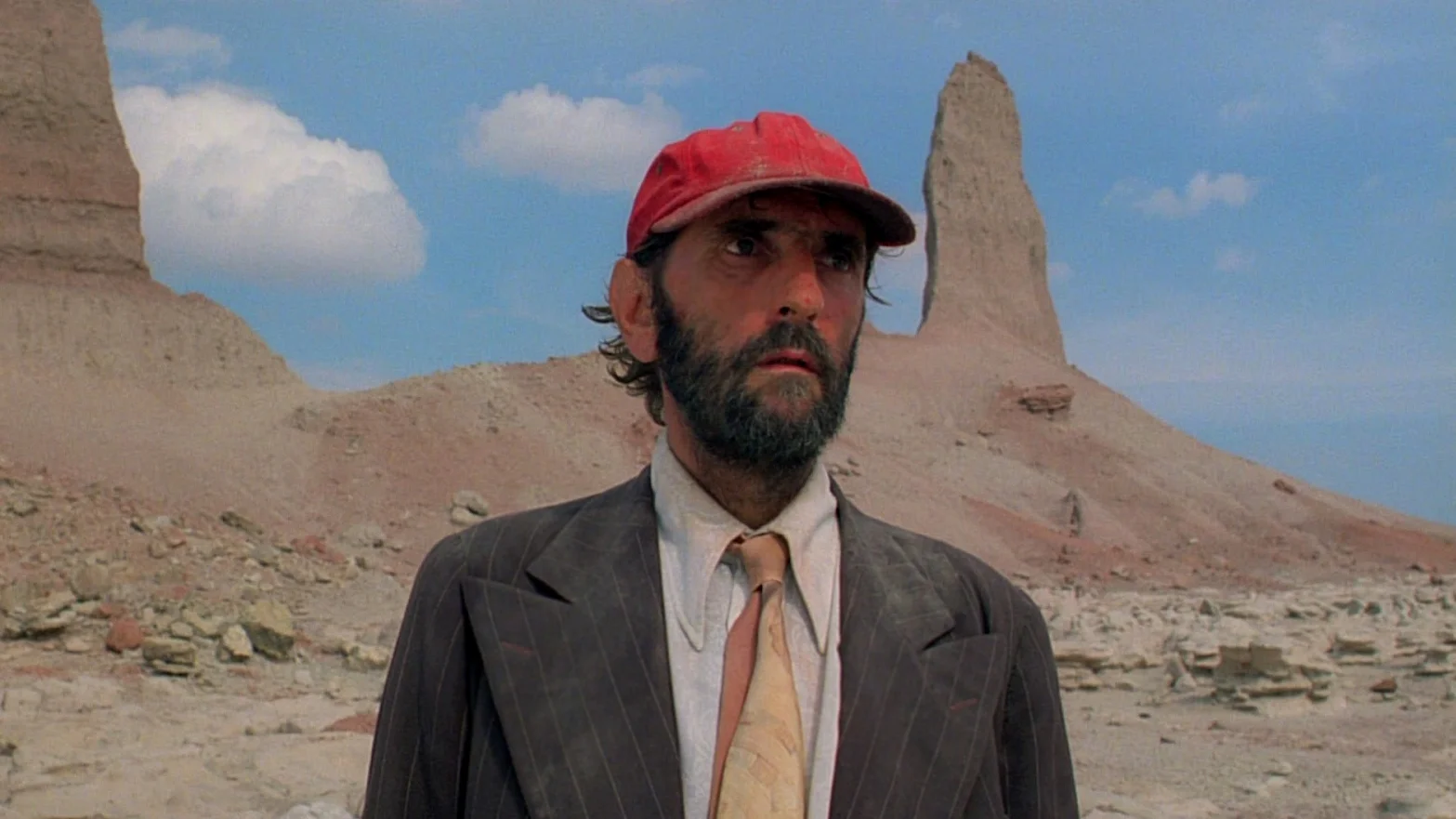A Face on a Pedestal: Harry Dean Stanton in Paris, Texas
This is part one of a Harry Dean Stanton retrospective, in honor of one of our greatest living actors.
“I play myself all the time, on camera and off. What else can I do?”
To say Harry Dean Stanton is a treasure would be underselling the burst of quality and class which emerges from his presence. Roger Ebert once said, “No movie featuring either Harry Dean Stanton or M. Emmet Walsh in a supporting role can be altogether bad.” His face raises stature, provides a lived-in experience, and accentuates process and professionalism. Its withered cracks and monumental creaks of understanding offer a grounded perspective on magic, as if the Hollywood Star took a day job. But such a complexion rarely receives a singular spotlight. Aside from Lucky, John Carroll Lynch's directorial debut currently running the festival circuit, and the magnetic undercurrent of Repo Man, Stanton is mostly known as a character actor, albeit a vibrant, scene-stealing one. But Paris, Texas, directed by Wim Wenders and written for the screen by Sam Shepard, poses the question of why more prominent, in-focus lead performances weren’t in the cards for Stanton.
The answer is obvious: the man likes to work, and there’s not necessarily a landscape (was there ever one in the first place?) for lead superstars that aren’t, well, the traditional standard of ‘pretty’. Stanton, even when he was younger and thriving in Cool Hand Luke, lives off normalcy and the pathos in the everyday, the poetics lingering against the existential void (one which Stanton finds himself well-attuned to). A character actor isn’t meant to be a brand; wearing the same costuming in their roles as they don for the red carpet. Stanton is ready to fade as any personality, but the effect lingers. And to watch the opening of Paris, Texas is to witness a culmination of Stanton’s early career levitate like an apparition of worldliness. Soothed to life by Ry Cooder’s wangled melancholy score, Stanton’s face is now the only face; itself imprinted against Texan landscapes and haunted by a past of which the viewer is unsure. And this is where Paris, Texas unearths its quiet succession of sentiment, as the pleasure, the pain, the aching realizations of the lead arrive through Stanton’s eyes rather than a typical celebrity. His uniqueness in human form provides the audience with a thrill, only given in short durations as a character actor.
In a way, it’s a dream spin-off film, but not of a character, it's of a performer. And much like the arc of Travis, one of the most fascinating depictions in late 20th-century cinema, watching Stanton in Paris, Texas is akin to observing a person reconnect with their love of acting, slowly developing their craft through the association between individuals, both familiar and not. Because Wim Wenders’ film is exactly that: a metamorphosis of maturity evoked between American spaces. Robby Müller, who also was DP on Repo Man, brings character to those environments with enriching color, so much so that his nighttime photography is continuously sought after by the likes of Paul Thomas Anderson (“I’m always trying to get night exteriors to look the way Robby Müller shot them….it doesn’t look like there’s any lights on.”). It is a film of great pictorial beauty — a landscape postcard animated on a twilight stroll to the bar — and the faces emphasize the struggle to be as pristine as humans think they can be.
Such trial and error is a piece of the American experience; getting it wrong and running away, sinking into the mind instead of bracing the body and pushing forward. Wenders captures history in details of Stanton’s face, and Sam Shepard, running into Stanton during a film festival, seemingly wrote in the spirit of the actor. It is a portrait of change for all involved, and although personal experience differs, they all, by the film’s heartrending coda, understand their demons of success, of connection, of America’s ironies and tangents. Exploration has never felt so intuitive, self-obsessed, and searing. And here, inside it all, this unwieldy masterclass of amendment, is Harry Dean Stanton, a figure crawling out of the shadows and learning to run. The performance clings to its practice, and it’s constantly in a state of development, even if it’s regressive. Celebrating it seems pointless, because rapturous claims deny the struggle of seeing what a lead role feels like to an actor, only to watch it drive away into the night.




